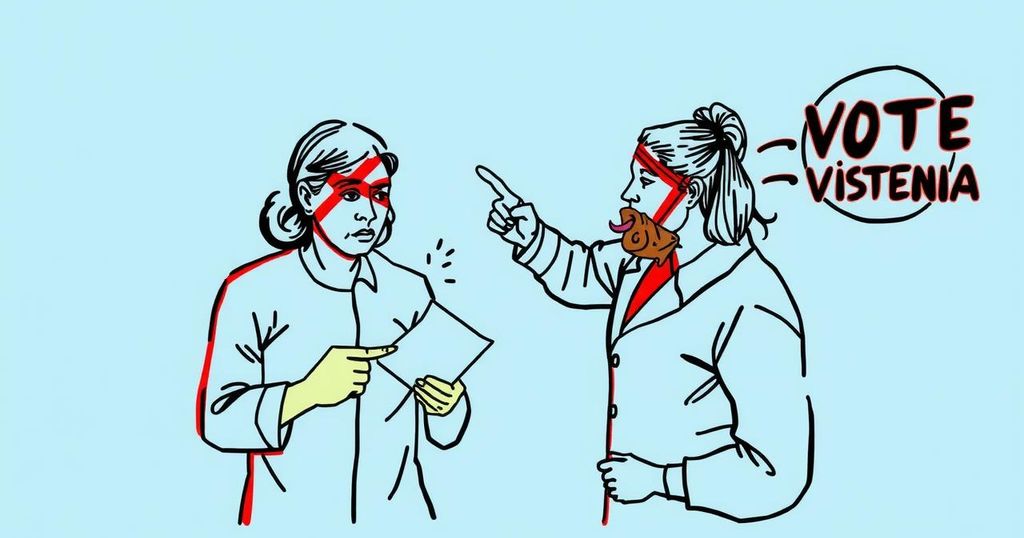Argentina’s Unexpected Rejection of U.N. Resolution on Gender Violence

Argentina’s recent vote against a U.N. resolution to end gender violence has drawn widespread criticism, marking a turn towards far-right policies under President Javier Milei. Known for his libertarian stance, Milei’s government is transforming Argentina’s foreign relations and domestic policies, leaving a significant impact on the country’s historical progressive identity.
In a significant and unexpected political maneuver, Argentina dissociated itself from a united global front by being the only nation to cast a ‘no’ vote against a United Nations resolution aimed at combating gender violence. This decision came against the backdrop of Argentina’s growing right-wing shift under President Javier Milei, who has implemented radical changes in both domestic and foreign policies. Historical ties to progressive values are now overshadowed by Milei’s alliances with countries like the United States and Israel, eliciting widespread criticism from various political factions within Argentina. The U.N. resolution, which was drafted by France and the Netherlands, sought to address the urgent issue of violence against women and girls. While abstentions from countries such as Iran and Russia were expected, Argentina’s outright rejection surprised many, highlighting an increasingly isolationist stance in its foreign policy. In recent days, Milei has also drawn attention for withdrawing Argentine negotiators from the U.N. climate summit, raising fears of a possible withdrawal from the Paris climate agreement, similar to the actions of former U.S. President Donald Trump. Milei has adopted a controversial leadership style characterized by a series of far-right policies, including dismantling previous commitments to gender equality and environmental protections. His government’s approach is evident in the abrupt shift that occurred following Argentina’s vote against the resolution, which previous administrations had supported. This geopolitical estrangement has alarmed many Argentines, prompting vigorous dissent from both supporters and opposition leaders. The response from political figures has been overwhelmingly critical, contrasting sharply with Milei’s intent to align Argentina’s policies with an extreme libertarian agenda.
The recent developments in Argentina’s foreign policy reflect a dramatic shift under President Javier Milei, who assumed office amidst a backdrop of significant socio-economic turmoil. With a historical reputation for being a progressive beacon in Latin America, Argentina’s current trajectory poses a stark contrast to previous administrations. Milei’s right-wing ideologies challenge established norms surrounding gender equality and climate action, raising critical debates about the country’s international commitments and social values. His policies have incited backlash from many Argentine citizens who fear a regression in social advancements achieved over decades.
In summary, Argentina’s unilateral rejection of the U.N. resolution to end gender violence signifies a troubling deviation from its historically progressive policies under President Javier Milei. This decision, coupled with his aggressive foreign policy realignment towards the United States and Israel, raises profound concerns about the nation’s commitment to gender equality and global cooperation. As dissenting voices grow louder, the implications of this cultural and political reset are yet to be fully realized within Argentina’s social fabric and international standing.
Original Source: www.seattletimes.com







